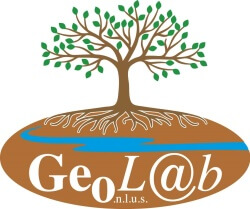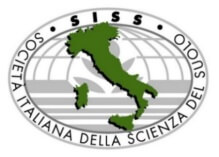HOW AGRICULTURAL CHEMISTRY CAN CONTRIBUTE TO DEALING WITH PROBLEMS OF ENVIRONMENTAL POLLUTION
DOI:
https://doi.org/10.6092/issn.2281-4485/3797Keywords:
soil chemistry, heavy metal pollution, redox and complexing reactions, xenobiotic degradationAbstract
Soil is a complex heterogeneous system whose physical, chemical and biological properties regulate interactions with the chemical species which reach its surface. Soil chemistry is an essential tool for understanding and predicting these interactions. Soil is able to immobilize and transform organic and inorganic molecules by different mechanisms, such as complexing and redox reactions. This behaviour gives soil detoxifying capacities towards pollutants which accumulate in the environment. Pollution by heavy metals is regulated by their solubility in soil solution which in turn depends on soil pH and redox properties and metal speciation. Organic and inorganic colloidal soil fractions can promote the immobilisation, degradation, and diffusion of organic molecules such as agrochemicals, solvents, hydrocarbons and other chemicals which reach the soil by anthropic activities. Predicting the fate of xenobiotics in soil, water, air, and plant ecosystems, the recycling of biomass and the decontamination of polluted soils are of major concern to soil chemistry.
References
BLASIOLI, S., BRASCHI, I., PINNA M. V., PUSINO A., GESSA, C. E. (2008) Effect of undesalted dissolved organic matter from composts on persistence, adsorption and mobility of cyhalofop herbicide in soils. Journal of Agrochemical and Food Chemistry, 56 (11): 4102-4111.
BRÜMMER G., TILLER K. G., HERMS U., CLAYTON P. M. (1983) Adsorption-desorption and/or precipitation-dissolution processes of zinc in soils. Geoderma, 31 (4): 337-354.
DEIANA S., GESSA C. E., USAI M., PIU P., SEEBER R. (1991) Analytical study of the reduction of chromium(VI) by d-galacturonic acid. Analytica Chimica Acta, 248 (1): 301-305.
LARSEN K. E. (1983). Cadmium content in soil and crops after use of sewage sludge. In: Proceedings of “Utilization of sewage sludge on land”, Uppsala, June 1983, Berglund S., Davis R. D. and L’Hermite P. Eds. Reidel Publishing Company, Holland.
LINDSAY W. L. (1979). Chemical Equilibria in Soil. Ed. Wiley Interscience Publication, New York.
PUSINO A., GESSA C. E., KOZLOWSKI H. (1988) Catalytic hydrolysis of quinalphos on homoionic clays. Pesticide Science, 24: 1-8.
Downloads
Published
How to Cite
Issue
Section
License
Copyright (c) 2010 Carlo Emanuele Gessa, Sonia Blasioli, Ilaria Braschi
Copyrights and publishing rights of all the texts on this journal belong to the respective authors without restrictions.
Articles published since 2020 are licensed under a Creative Commons Attribution 4.0 International License:
Previous articles are licensed under a Creative Commons Attribution-NonCommercial 3.0 Unported License:











